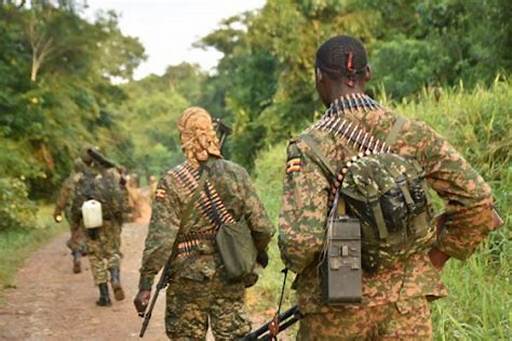by Admin
Jan 28, 2025
Rebels from the M23 movement have advanced on the strategic city of Goma in eastern Democratic Republic of Congo (DRC), with confirmed reports that they have seized control of the city’s airport on Monday night after intense clashes with the Congolese army.
However, the Congolese government insists it remains in control of Goma airport despite ongoing heavy clashes in parts of the city.
Several aid agencies report widespread looting of warehouses containing food and medical supplies. At the same time, hospitals are overwhelmed by casualties, and bodies lie uncollected on the streets, according to the United Nations.
The rebel offensive has sparked protests in the capital, Kinshasa, with demonstrators targeting foreign embassies, which include France, Kenya, and Uganda. Protesters burned tires and disrupted traffic, which reflected growing public frustration over the violence.
The M23, a Tutsi-led rebel group, has been accused of receiving support from neighboring Rwanda, which Kigali has repeatedly denied.
The group has made significant territorial gains in several parts of the mineral-rich region, a vital hub for global trade in resources such as those used in mobile phone production.
In response to the escalating violence, the African Union (AU) called on the M23 to lay down arms following a meeting on Tuesday. Bankole Adeoye, the AU’s Peace and Security Commissioner, condemned the violence and reiterated support for DRC’s sovereignty and territorial integrity.
Despite ongoing diplomatic efforts, the situation in Goma remains dire. Prodesq News Agency gathered that M23 fighters had taken control of the airport, and more than 1,200 Congolese soldiers reportedly surrendered and are now confined to a United Nations base near the airport.
Humanitarian agencies have described the crisis as one of the deadliest since the Congolese civil war.
Adelheid Marschang, the World Health Organization’s emergency response coordinator for the DRC, reported hundreds of gunshot victims have been admitted to several hospitals, with the International Committee of the Red Cross (ICRC) treating over 100 wounded within 24 hours at its Goma hospital—an unprecedented influx. The hospital car park has been converted into a triage area to manage the surge.
The use of heavy artillery in densely populated areas is causing severe injuries, particularly among children, the ICRC noted.
Meanwhile, peacekeeping forces have also suffered losses. South Africa announced that four of its soldiers, deployed as part of the United Nations mission in the DRC, had died in clashes with M23, bringing the country’s total peacekeeping fatalities to 13. Malawi and Uruguay have also reported casualties among their troops.
South African President Cyril Ramaphosa and Rwandan President Paul Kagame held discussions on Monday, agreeing on the urgent need for a ceasefire and resumption of peace talks.
In parallel, US Secretary of State Marco Rubio condemned the M23 offensive in a call with Congolese President Félix Tshisekedi. Both leaders agreed on the importance of restarting peace negotiations with Rwanda to address the crisis.
As the conflict escalates, international and regional efforts to broker peace are gaining urgency, but the humanitarian toll continues to rise in Goma and surrounding areas.

